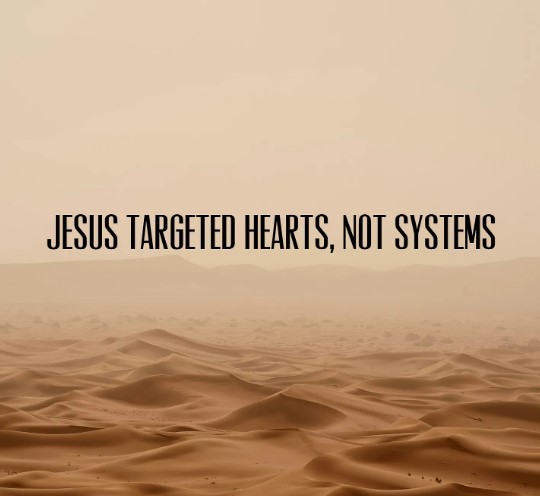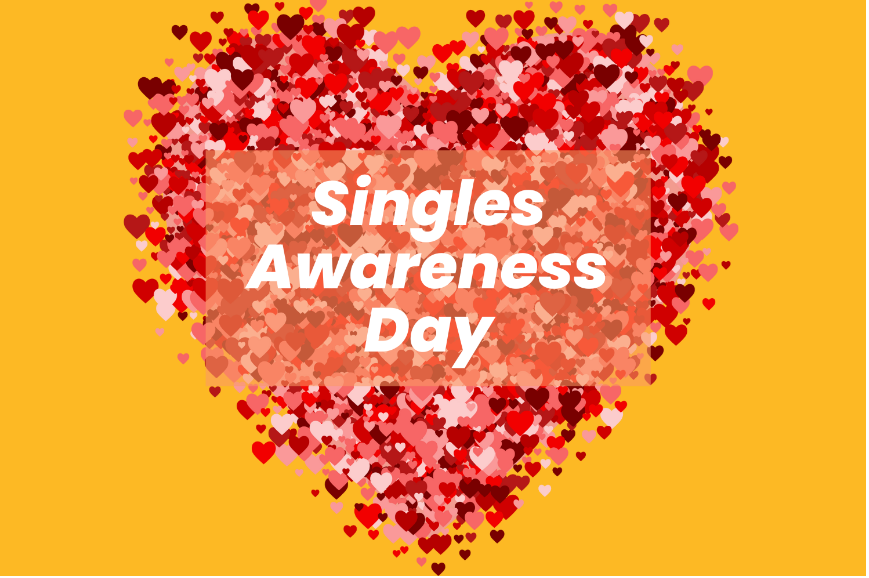The Truth About Lies About Jesus

- Jesus Targeted Hearts, Not Systems
- The Freedom of Limits
- Single Awareness Day
- I Forgive You
- Information Correctly Examined
I know, I know. I said I wouldn’t write any more religious posts because too many religious people major on minors and miss the forest for the trees. But I saw a piece recently where a writer attempted to show us just how smart he was and exercise a moral authority that apparently he possesses and everyone else just sits in awe, awaiting his every wise word on how centuries of information derived from ancient texts should be viewed the way he says it should, in spite of the historical accuracy of said ancient texts, or you are simply wrong. (I’ve purposely chosen not to include his article, so he doesn’t get unnecessarily digitally doxed).
It always fascinates me how people spend so much time attempting to tear down mountains of archaeological evidence, lived experience, and structure that has clearly benefited society. This happens when people attack religion, and especially Christianity. I say especially, because it is the religion that is the most attacked in America.
I won’t go too deep here on this, but three major discoveries of ancient scrolls surfaced over time, each older than the previous finds. Each time, they were identical. This is almost impossible to achieve outside of authenticity. Scholars who specialize in ancient manuscripts don’t dispute the core documents used to assemble the Bible. The best resource I know for this information is Wes Huff. Moving on.
In this newest hit piece, the first problem I notice is the overwhelming desire to use the word Palestinian yet claim to be giving us a history lesson at the same time. Palestinian wasn’t a word used often in biblical times. It’s not a region. Not an ethnicity. Regardless, let’s glean from his “Four points of brilliance.”
#1. Jesus Wasn’t White.
“What most white Christians conveniently forget is that the real Jesus of Nazareth looked nothing like those Renaissance paintings.”
Who is most? No one believes he was. I literally know of no one that believes for one second that Jesus was “white.” He was Jewish. The idea that some may consider him white is pulling from, very possibly, one of the smallest samples in survey history. The only people claiming others say this are indulging in the very tired race baiting that permeates liberal white women.
#2. Jesus Was Political.
“You have to be especially ignorant of basic historical facts to believe that Jesus—who was literally executed by the state as a political threat under a placard reading ‘King of the Jews’—wasn’t political.”
The crucifixion was illegal. Neither the Romans nor the Jewish authorities actually had a solid legal case against Jesus. Nothing that justified an execution. Many expected him to lead a revolutionary style governmental revolt, but his teachings consistently pushed away from political insurrection. He instructed them to respect the government. His only real intersection with political authority was confronting the Pharisees, who had aligned themselves with Roman power to protect their religious structure, cultural traditions, and the limited individualism and autonomy they still retained.
“He proclaimed good news to the poor and liberation to the oppressed.”
Yes. To the individual.
“He warned the first would be last and the last would be first.”
Calling the individual to humble himself.
“He told parables of masters being overthrown by servants, kings being challenged, wealthy being cast down while hungry were fed.”
The aim was to cultivate humility. To remind the person that, apart from Christ, their standing is no greater than that of the beggar, and that wealth should remain a servant rather than a master.
“He rode into Jerusalem on a donkey in a deliberate parody of Roman imperial processions.”
This was prophesied in Zechariah 9:9 approximately 500 years before Jesus was here.
The four examples given under #2 were all directed to the individual. Never a systemic enterprise. His message challenged hearts, not institutions.
#3 His Message Wasn’t About Heaven or Afterlife.
“Recognize that the Bible is not a historically accurate transcript of what Jesus said
(Admittedly, this is very difficult for most people who have been brainwashed to believe almost from birth that the Bible is “the word of God” with no mistakes and practically a fourth member of the trinity).”
Brainwashed? Brainwashed to believe 2 Timothy 3:16.
Then he says,
“Feed the hungry, clothe the naked, liberate the oppressed, forgive debts, redistribute wealth.”
Nope. Redistributed wealth was never near his lips. And even if it were interpreted that way, His message challenged hearts, not institutions.
Jesus’ message about money wasn’t complicated. Many religious leaders in his time were corrupt, working with Roman authorities to protect their hierarchical power and status. They treated wealth like proof of spiritual favor. Jesus didn’t condemn wealth itself, he warned, either you govern money, or it governs you. His criticism was aimed at people, like the Pharisees, who were controlled by money.
Maybe my favorite part of this segment in the piece was the dismissal of validity due to the fact that John wrote his letters around 70 A.D. (Actually, he said 70 years after Jesus’ death. That’s not true. It was approximaely 35 years after). This was when they knew it had all been completed. Not when they believe he wrote it. But let’s assume “oh wise one” is right. We have texts on Alexander the Great. The first known writings about his life happened over 250 years after his death. But we believe it as undeniable truth. The inconsistency is astounding.
#4 Jesus Wasn’t Divine.
“This is the big one—and is probably most difficult for modern Christians to accept. The historical Jesus, the man who walked the earth 2,000 years—never actually claimed to be divine. That’s an invention of his later followers.”
This is the biggest reach. But it again denies the validity of 2 Timothy 3:16. This is to dismiss the expression of the trinity, the claim that got him killed, and the more than 300 prophecies from the Old Testament that he fulfilled. If Jesus was not divine, we are all doomed. I guess, “I am the way, the truth, the life. No one comes to the Father except through me” just slipped his mind.
Why It Matters
“It made Jesus into an object of worship, a ticket to heaven, a way to escape this world.”
No, it actually drew a line in the sand, called people up, demanded people do not give in to desires, pointed to a narrow road, gave hope to the hopeless, and solidified exactly why Jesus was here.
What this writer did was cherry pick the visions of the anointed, the intellectuals (who surely have no agenda of their own) and justified every carnal move and every principal they think writers in the Bible “just got wrong.”
This is how dangerous it is to be governed by our feelings. We will find things that aren’t there.
“The lies Christians tell about Jesus—that he was white, apolitical, focused on the afterlife, and divine—aren’t innocent mistakes. They’re a systematic reconstruction designed to make Jesus safe for power.”
“This afterlife-obsessed Christianity has served power perfectly throughout history.”
The reduction to power is the part that’s intellectually dishonest. As if the only motivation one could have for staying out of politics was for power. This is truly paradoxical to common sense playing out right in front of us. Many, if not most, get in to politics for power, not avoid it.
Growth Over Feelings
But why would someone take such pride in deconstructing the Christian faith using fallacies and feelings over centuries of fact? Because it doesn’t line up with the way he feels. It doesn’t just say, “Do exactly what you want. Your truth is superior to the truth.”
It calls you toward a peaceful life. Towards delayed gratification. To invest in the next generation. To be a person of moral character. Integrity. Consistency. This fosters personal growth. And that’s difficult and messy. When beliefs clash with personal preference, reinterpretation becomes tempting.
Ok, I’m done with this. It will likely call out every religious zealot that sits around all day thinking about whether Susan went all the way in (because we saw her hand sticking out) or if we need to schedule another baptism. Sheesh. I’m tired thinking about that.
Stay Classy GP!
Grainger












